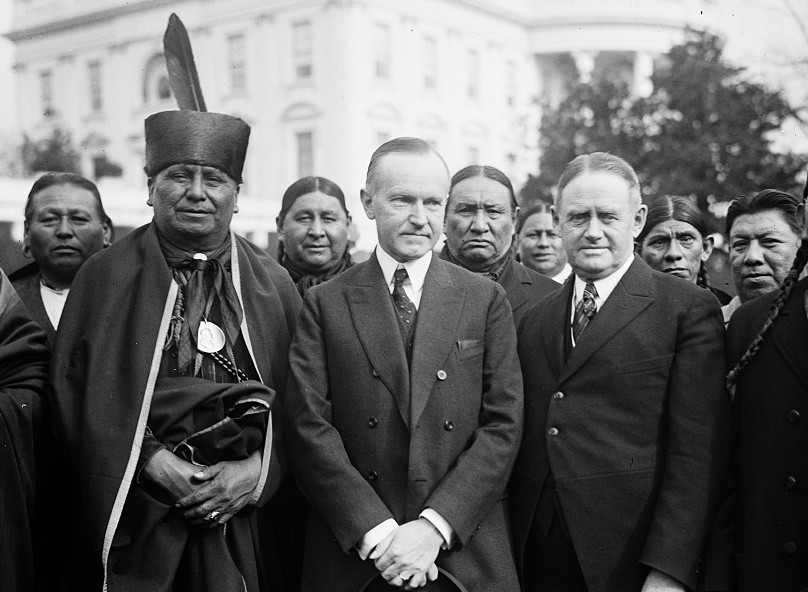
Date Created:
Place Created: Washington, DC
Year Created: 1924
Publisher: Congress
Historical Theme:
Description:
In the Indian Citizenship Act, Congress that declared that Indigenous persons born within the United States are US citizens.
Although the Fourteenth Amendment i n1868 provided that any person born in the United States was a citizen, there was an exception for persons not "subject to the jurisdiction" of the federal government. This language was generally taken to mean members of various tribes that were treated as separate sovereignties: they were citizens of their tribal nations rather than the United States.
The act was proposed by U.S. Representative Homer P. Snyder (R-N.Y.), and signed into law by President Calvin Coolidge on June 2, 1924. It was enacted partially in recognition of the thousands of Native Americans who served in the U.S. Armed Forces during World War I.
43 Stat. 253, enacted June 2, 1924
Categories of Documents:
Be it enacted by the Senate and House of Representatives of the United States of America in Congress assembled, That all non citizen Indians born within the territorial limits of the United States be, and they are hereby, declared to be citizens of the United States: Provided That the granting of such citizenship shall not in any manner impair or otherwise affect the right of any Indian to tribal or other property.
Approved, June 2, 1924. June 2, 1924. [H. R. 6355.] [Public, No. 175.]
SIXTY-EIGHTH CONGRESS. Sess. I. CHS. 233. 1924.
See House Report No. 222, Certificates of Citizenship to Indians, 68th Congress, 1st Session, Feb. 22, 1924.

